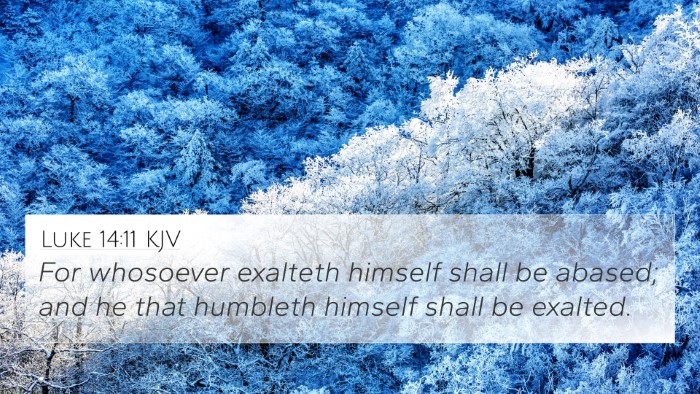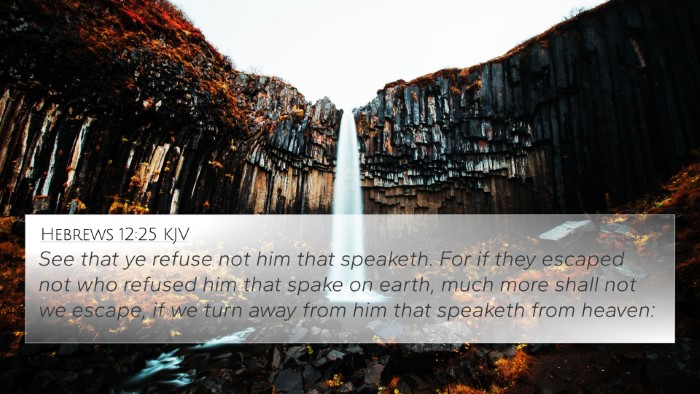Understanding 2 Kings 5:11
2 Kings 5:11 presents a significant moment in the narrative of Naaman, a Syrian commander afflicted with leprosy, who seeks healing. The verse captures Naaman’s reaction when he is dishonored by the prophet Elisha’s refusal to meet him in person and instead sending a messenger to instruct him to wash in the Jordan River. This moment highlights themes of pride, humility, and the power of faith.
Naaman's anger is a reflection of human nature, where expectations of grandeur and significance often overshadow the simplicity of God's instructions. The gravity of Naaman's indignation and his subsequent choices illuminate the broader spiritual lessons depicted throughout scripture.
Commentary Insights
-
Matthew Henry: Henry emphasizes that Naaman’s response reveals the struggle between pride and obedience. He suggests that God’s ways often seem foolish to the wise and mighty, and that humility is key to experiencing divine healing.
-
Albert Barnes: Barnes notes that Naaman’s expectations were based on his status, which led him to underestimate the power of God’s directive. He argues that faith must transcend human understanding and expectation in order to yield divine results.
-
Adam Clarke: Clarke discusses the cultural implications of Naaman's refusal to heed Elisha's instructions immediately. He interprets it as a broader commentary on the nature of faith, stating that true healing requires submission and compliance with God’s command, even when they seem unworthy of his high rank.
Thematic Connections to Other Scriptures
The themes presented in 2 Kings 5:11 can be linked to other Bible verses that explore humility, faith, and the nature of God’s instructions. Here are some notable Bible verse cross-references:
- James 4:6 - "But he gives more grace. Therefore it says, ‘God opposes the proud, but gives grace to the humble.’"
- Isaiah 55:8-9 - "For my thoughts are not your thoughts, neither are your ways my ways, declares the Lord."
- Matthew 11:28-30 - "Come to me, all who labor and are heavy laden, and I will give you rest."
- Luke 18:14 - "For everyone who exalts himself will be humbled, but the one who humbles himself will be exalted."
- 1 Peter 5:6 - "Humble yourselves, therefore, under the mighty hand of God so that at the proper time he may exalt you."
- Acts 10:34 - "So Peter opened his mouth and said: 'Truly I understand that God shows no partiality.'"
- Romans 12:3 - "For by the grace given to me I say to everyone among you not to think of himself more highly than he ought to think."
Cross-Referencing and Thematic Analysis
Understanding 2 Kings 5:11 is further enriched through comparative Bible verse analysis. The act of Naaman's healing invites us to consider the broader connections between Bible verses concerning divine intervention in lowly means:
-
Faith's Response: Romans 10:17 - "So faith comes from hearing, and hearing through the word of Christ." This highlights the importance of faith in responding to God’s word, paralleling Naaman's initial reluctance and eventual obedience.
-
The Jordan River: Matthew 3:13-17 - Christ’s baptism in the same river demonstrates God’s willingness to use humble waters for profound spiritual experiences.
-
God’s Use of the Ordinary: 1 Corinthians 1:27-29 - "But God chose what is foolish in the world to shame the wise." This encourages us to trust God’s methods, which may not align with human wisdom.
Conclusion
The narrative of Naaman in 2 Kings 5:11 serves as a reminder of the transformative power of God’s instructions when approached with humility and faith. The Bible cross-reference guide allows for deeper understanding by identifying relationships and themes in scripture, ultimately reinforcing that true healing and faith lie in submission to God’s will. By studying inter-Biblical dialogue, believers can find coherence and direction in their spiritual journeys, ensuring that they do not overlook the simple commands that God extends through His Word.

















